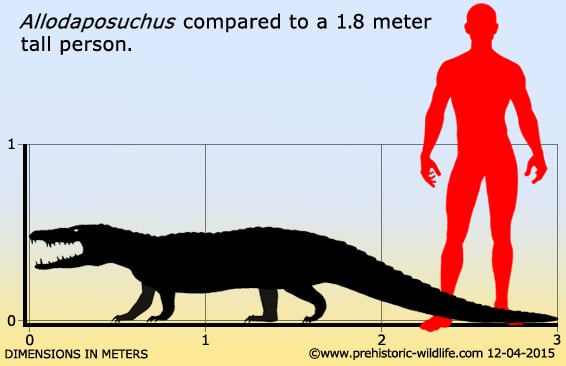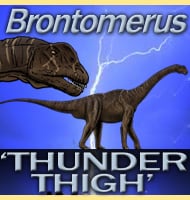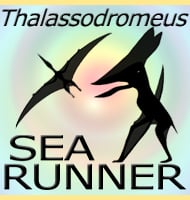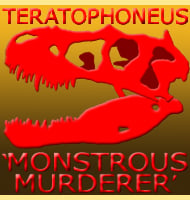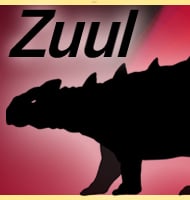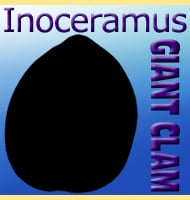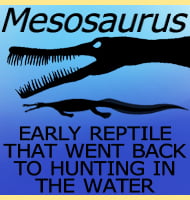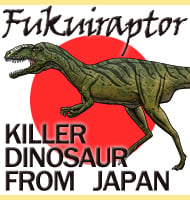In Depth
Compared to some larger Cretaceous crocodiles such as Deinosuchus, Allodaposuchus was actually quite small, but it still would have been a serious danger to the smaller dinosaurs that were running across Europe during the Cretaceous. Given the speed of smaller ornithopod dinosaurs the best chance that Allodaposuchus had of making a kill would have been to us ambush tactics similar to those seen in crocodiles today. Allodaposuchus may have also scavenged the kills of larger dinosaurs. Additionally by living in what is now the Hateg Basin of Romania, Allodaposuchus probably would have been in regular contact with what are termed dwarf dinosaurs.
Back in the Cretaceous Hateg basin was actually an island separated from mainland Europe, and the animals living there grew smaller than their mainland contemporaries by a process termed insular dwarfism. This is a process where animals grow smaller as to not exhaust the limited amounts of food plants (and by extension prey for carnivorous animals) that are available on a smaller land mass. Allodaposuchus might not have grown that much smaller however, as since crocodiles are cold blooded and can reduce their metabolism they can survive for longer upon a reduced amount of food. With this in mind the Allodaposuchus living upon what was once Hateg Island probably would have been considerably higher up the food chain than Allodaposuchus on the mainland.
Remains of a crocodile referred to as Crocodilus affuvelensis were once thought to belong Allodaposuchus, but a review by Jeremy Martin and Eric Buffetaut in 2008 saw these remains erected as their own distinct genus, Massaliasuchus.
Further Reading
– Paleontological notes on Reptilia. 7. Classification of the Crocodilia – Geologica Hungarica, Series Palaeontologica 1: 75–84. – F. Nopcsa – 1928. – A revision of the crocodyliform Allodaposuchus precedens from the Upper Cretaceous of the Hateg Basin, Romania. Its relevance in the phylogeny of Eusuchia. – Journal of Vertebrate Paleontology 21: 74. – A. D. Buscalioni, F. Oretega, D. B. Weishampel & C. M. Jianu -2001. – A complete skull of Allodaposuchus precedens Nopcsa, 1928 (Eusuchia) and a reassessment of the morphology of the taxon based on the Romanian remains. – Journal of Vertebrate Paleontology 28. – M. Delfino, V. Codrea, A. Folie, P. Dica, P. Godefroit & T. Smith – 2008. – Allodaposuchus Nopsca, 1928 (Crocodylia, Eusuchia), from the Late Cretaceous of southern France and its relationships to Alligatoroidea. – Journal of Vertebrate Paleontology 30 (3): 756–767. – J. E. Martin – 2010. – The eusuchian crocodylomorph Allodaposuchus subjuniperus sp. nov., a new species from the latest Cretaceous (upper Maastrichtian) of Spain. Historical Biology 26(1):91-109. – E. Pu�rtolas-Pascual, J. I. Canudo & M. Moreno-Azanza – 2013. – Allodaposuchus palustris sp. nov. from the Upper Cretaceous of Fumanya (South-Eastern Pyrenees, Iberian Peninsula): Systematics, Palaeoecology and Palaeobiogeography of the Enigmatic Allodaposuchian Crocodylians. – PLoS One 9(12):e115837. – A. Blanco, E. Pu�rtolas Pascual, J. Marmi, B. Vila & A. G. Sell�s – 2014.- Importance of the postcranial skeleton in eusuchian phylogeny: Reassessing the systematics of allodaposuchid crocodylians. – PLOS ONE. 16 (6): e0251900. – A. Blanco – 2021.
